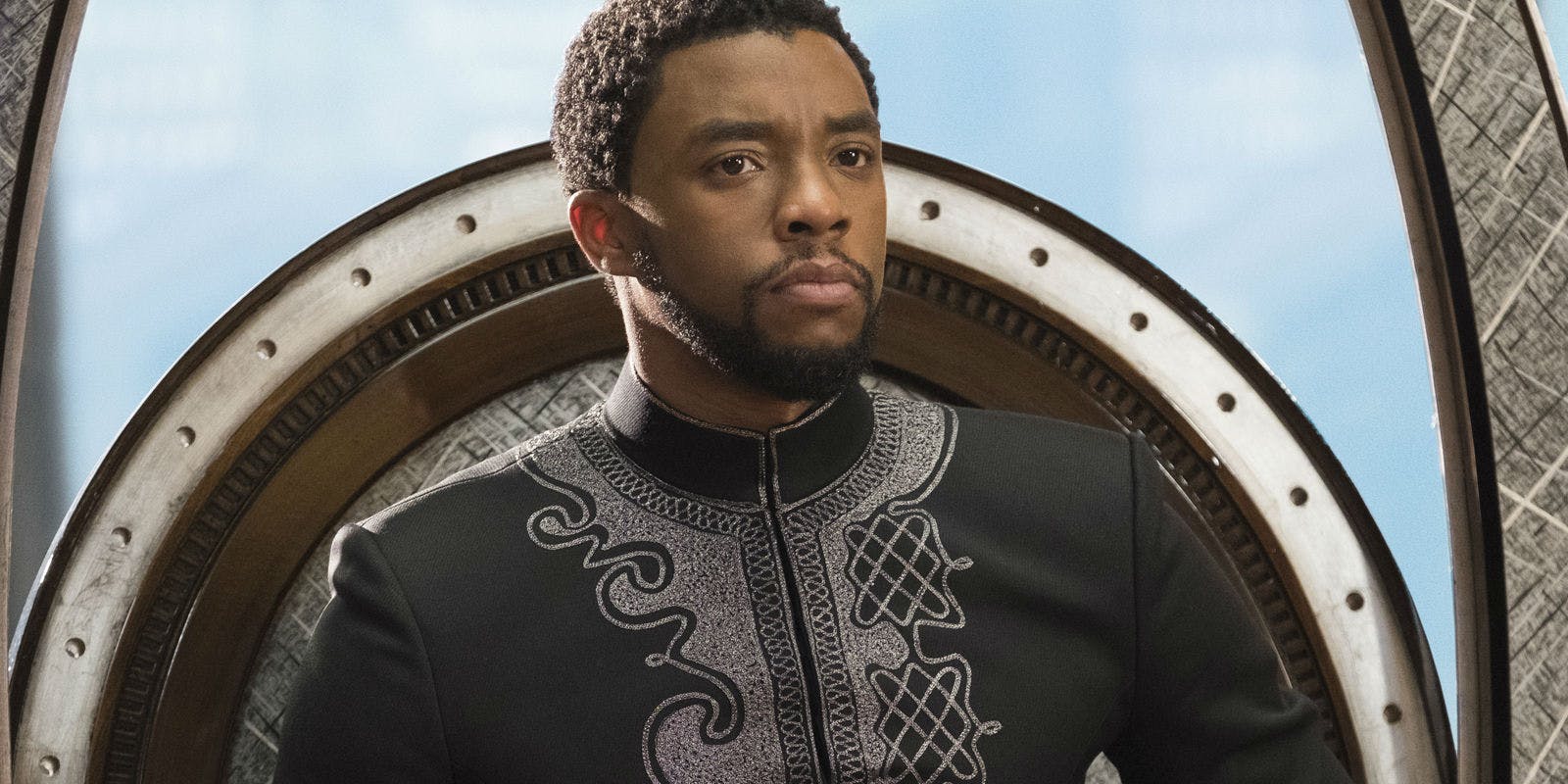
Every single year we have the Academy Awards to highlight the supposed best of the year. The truth is most of the time the very best are never truly nominated. Now do I necessarily care about what the Academy says, not really. But the Academy is a prestigious institute that holds weight, it shines a spotlight on films that may or may not deserve it that then creates a ripple effect in the film industry.
There’s a reason terms like “Oscar-Bait” exist, studios have taken note of what the Academy typically nominates so they will go out of their way to create films like that. So when you now consider that the Academy places specific rules in their system to limit the amount of films that can qualify for awards, you start to realize that the Academy calling anything ‘Best Picture’ is highly questionable.
In the 90 year history of the Oscars I can honest tell you people that there’s only been 9 instances of where the Academy gave the Best Picture to what I truly felt was the number 1 best film of the year. Not to say I hate most Best Picture winners because I don’t, I usually like the films that win even if they’re not my number 1. But there are many instances where they simply get it wrong. And that’s what I’m going to highlight here today.
The times in Oscar history where the lineup of Best Picture nominees was, shall we say, less than stellar. Not to say every single one of these was a bad nomination, nor that the eventual winner was a bad choice, but rather to showcase what could’ve and by outward appearances should’ve been. So with that here are the 10 Worst Best Picture Line-Ups, in no order other than chronologically.
1. 1949: All the King’s Men (Winner), Battleground, The Heiress, A Letter to Three Wives, Twelve O’Clock High

Question, has anyone actually heard of any of these films? If you think the Academy nominating average movies for Best Picture is a new development you’re sorely mistaking, this has been going on for a while. 1949 was a year indicative of WWII crowd pleasers like “Battleground” and “Twelve O’Clock High” and 2 forgettable melodramas “The Heiress” and “A Letter to Three Wives”. The winner was “All the King’s Men” and it wasn’t even a very good movie, it’s just as forgettable as everything else nominated here.
It’s a real shame too because while America was shelling out uninteresting films this year, other countries were tearing it up. The British film “The Third Man” was one of the greats of the decade that showed Orson Welles abilities as an actor in what I would call his best performance and demonstrated the directional abilities of Carol Reed.
Akira Kurosawa made one of his greatest with “Stray Dog” that got the ball rolling with greats he would make in years to come. Yasijiro Ozu made the incredible “Late Spring” which is another great in his long list of deeply spiritual films and one of the all-time greats.
And to give America some credit we had the excellent Raoul Walsh film noir “White Heat” which is cemented as one of the great crime films of all time. It’s been a trend since almost the dawn of the Academy Awards that the year’s best don’t really get nominated like they should and this was only the beginning.
2. 1952: The Greatest Show on Earth (Winner), High Noon, Ivanhoe, Moulin Rouge, The Quiet Man
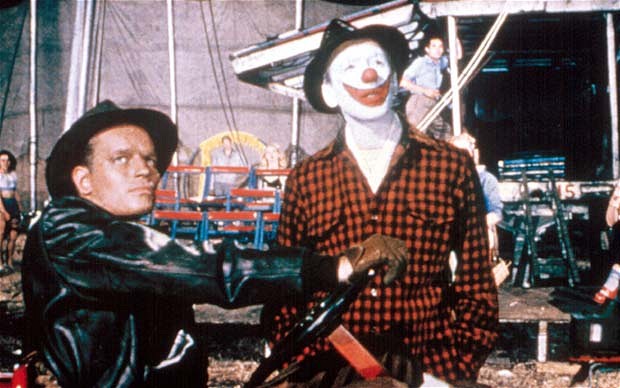
“The Greatest Show on Earth” is pretty much all I have to say, widely regarded as one of the worst winners of all time. The sad thing about that is it was probably the 2nd best of the nominees. The original “Moulin Rouge” is an uninteresting piece of the times, “The Quiet Man” is decent film but not one of John Wayne’s best, and I dare you people to tell me anything about “Ivanhoe”.
Then of course there’s “High Noon” which was definitely the best of the bunch. It was fascinating for its structure and important for its themes regarding American culture and communism, but personally speaking hasn’t aged very well compared to many of the other classics.
It’s weird to think that “Singin’ in the Rain”, the greatest of all classic musicals, wasn’t nominated for the grand prize this year. Especially when it’s coming off the heels of another Gene Kelly musical “An American in Paris” that won Best Picture just one year before.
There also needs to be mention of Akira Kurosawa’s masterpiece “Ikiru” that continues to be one of the greatest films ever made, Oscars have a track record of never recognizing foreign films and this was no exception. And I’ll also mention the highly unappreciated thriller “5 Fingers”, it’s not always mentioned in the same breath as other WWII spy thrillers like “Notorious” but it should be.
With many years, regardless of whether I like it or not, I can understand why they nominated films the way they did. And I’ll elaborate on this once we go through more of this list. But the films of 1952 is one that has me scratching my head because I truly don’t understand why they went with the lineup they did.
3. 1955: Marty (Winner), Love is a Many-Splendored Thing, Mister Roberts, Picnic, The Rose Tattoo
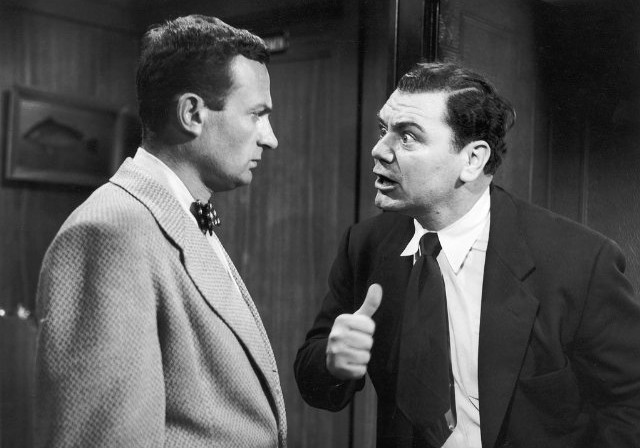
There aren’t many Oscar lineups as blank as this one. The only one worth talking about was “Marty” which deserved the win out of those nominees, I mean what else could it have gone to? If there’s a ceremony that better illustrates how the Academy thinks short term instead of long term this might be the one. Every nominee was indicative of their time and never escaped it, try watching any of these now and you’ll see how hard it is to sit through.
This is probably the one ceremony out of this list where I would’ve scrapped every nominee and replaced it with something else, every other year I’ll mention could’ve been better but there could at least be one or even two I liked. My five picks from this year, and I’m sure everyone’s 5 picks would be “The Night of the Hunter” which is one of the greatest of all classic films even if it doesn’t always get the credit for it. If there’s a better looking black and white film I’d like to know what it is.
“Rebel Without a Cause” and “East of Eden” were also great films that are often mentioned in conversations of the most iconic of the 50’s decade. We had a severely underrated western film “Bad Day at Black Rock” and one of the great French films of all time “Diabolique”. To be fair I’m sure “Diabolique” was a film that didn’t get recognized in America during this time, and in the tradition of the Academy they probably weren’t concerned with the other greats I mentioned. Which is a damn shame.
4. 1956: Around the World in 80 Days (Winner), Friendly Persuasion, Giant, The King and I, The Ten Commandments
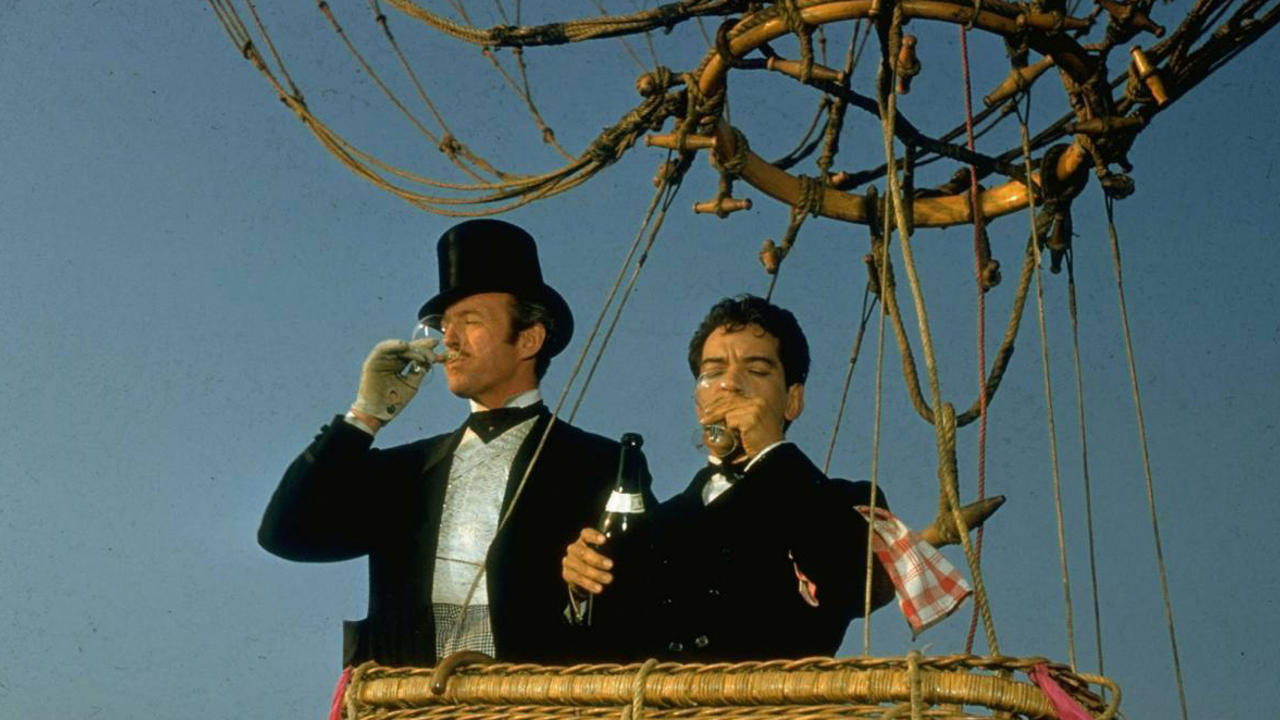
Well this one should go without saying. When polls are conducted asking what the worst Best Picture winners are, “Around the World in 80 Days” is always listed up there in the top rankings. I know that generally speaking 1956 wasn’t the most stellar year in history but there was certainly more than what we got nominated here.
The only film out of these nominations that should even be remotely considered in contention is “Giant” which is a great epic. A sprawling, sly, and bold look at Texan society that went over big and showcased what James Dean was capable of, if only he had lived longer.
The only other nomination that’s noteworthy would be Cecil B. DeMille’s “The Ten Commandments” which certainly holds a place of fame in the annals of history, but with that being said isn’t a fully realized project either. It certainly is an epic in every sense of the word but definitely has its faults in direction, acting, writing, and biblical accuracy. Everything else is just ordinary beyond belief.
The biggest snub of 1956 is without a doubt “The Searchers” which continues to stand as one of the great films of all time, and certainly one of the most influential. Westerns were the dominating genre in the film industry for a long time but towards this time period is when they started falling out of relevance, so I guess it’s understandable how it didn’t get nominated.
Stanley Kubrick made his first great film with “The Killing”, a crime heist picture that was ahead of its time but probably didn’t appeal to the old guard in 1956. We had two science fiction classics “Forbidden Planet” and “Invasion of the Body Snatchers” released this year that still resonate as two of the genre’s most important.
Alfred Hitchcock made some good films this year with “The Man Who Knew Too Much” and “The Wrong Man” which admittedly aren’t the best he’s made but are still so much better than most of the nominees we did get. And then of course there’s the famous Bing Crosby musical “High Society” which is certainly one of the best the classic era of film has to offer.
All in all 1956 wasn’t the best year by any means, and the selection of nominees demonstrates how Hollywood was battling television. As such they were presenting the most epic films they could to separate them from what t.v. was doing, regardless of whether they were great or not.
5. 1968: Oliver! (Winner), Funny Girl, The Lion in Winter, Rachel Rachel, Romeo and Juliet
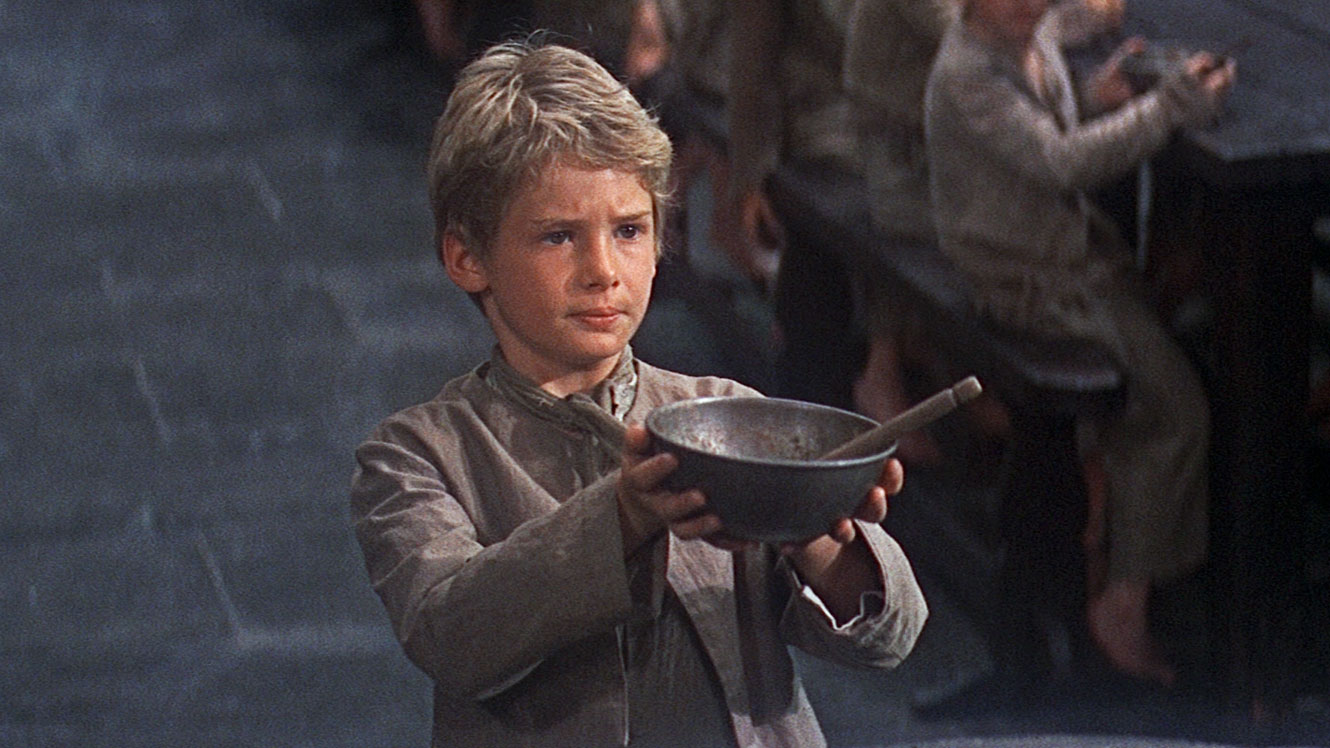
The previous year of 1967 sparked a revolution in the film industry. With the releases of films like “The Graduate”, “Bonnie and Clyde”, and “In the Heat of the Night” the content that films could now experiment with was becoming vaster. With this breakthrough came New Hollywood, a time period of American filmmaking we’ll probably never see anything like again on a mainstream level.
Unfortunately, as is typical with the Academy members, they weren’t quite up to level with the current wave of talent. It’s a historical fact that the Academy has predominantly been run by the old guard and sadly the 1968 Oscars demonstrate this.
Still stuck in the old ways of past nominees with two less than amazing musicals, “Oliver!” and “Funny Girl”. Another movie in the long list of Shakespeare adaptations “Romeo and Juliet” that’s not one of the best adaptions. Paul Newman making a fairly good surprise with “Rachel, Rachel” and then a very good period piece “The Lion in Winter”. But even so this was not up to snuff.
The biggest omission from this year’s Oscars is of course Stanley Kubrick’s gold standard masterpiece “2001: A Space Odyssey”, unquestionably the best film of 1968. It’s understandable in hindsight because audiences and critics alike back then didn’t understand what they had just witnessed unlike nowadays where we’ve had 50 years of scholarly teaching to go into our perceptions of it now. But even so it’s a little saddening to think Kubrick’s only Oscar win was a Visual Effects category for this film.
But adding to Kubrick’s masterpiece we had 2 horror classics for the ages as Roman Polanski tapped into the fears of paranoia that was prominent in the 60’s with “Rosemary’s Baby” and George A. Romero gave us the last of the classic black and white horror films with “Night of the Living Dead” which rewrote the book for the zombie genre. Rod Serling created another mind bending reality to mirror our own with “Planet of the Apes” directed by Franklin J. Schaffner.
Overseas Sergio Leone crafted one of the finest westerns of all time with “Once Upon a Time in the West” while Lindsay Anderson gave us a prominent piece of the eras counterculture “If…”. John Cassavetes made another milestone in independent cinema with “Faces” while Mel Brooks gave us a comedy classic with “The Producers”. In the upcoming decades the Academy would get themselves back into gear and recognize the influence that was happening, as the years went on they were nominating more and more great films for Best Picture but in 1968 there was still some progress to be made.